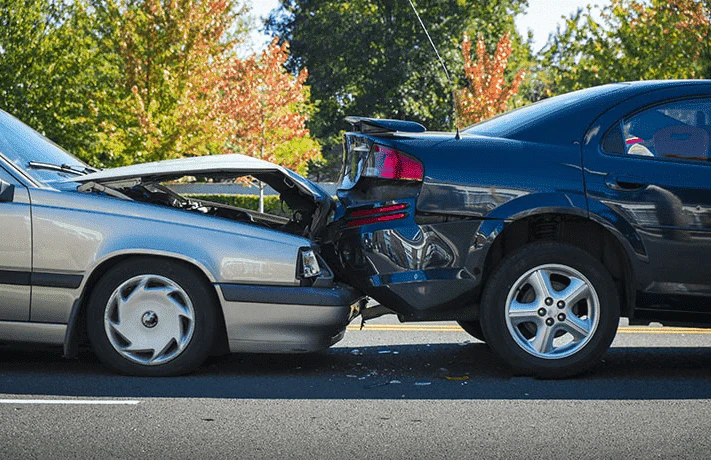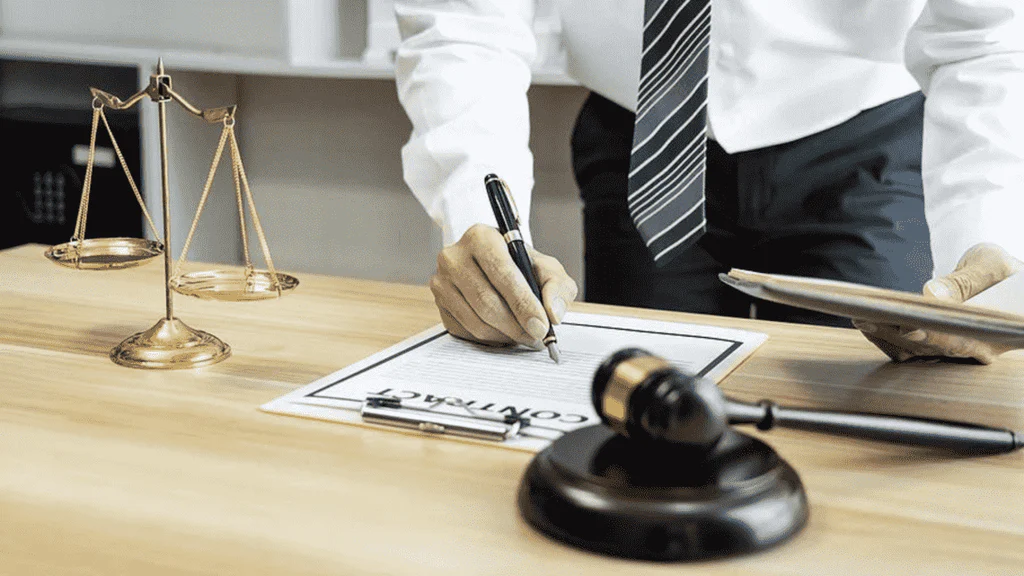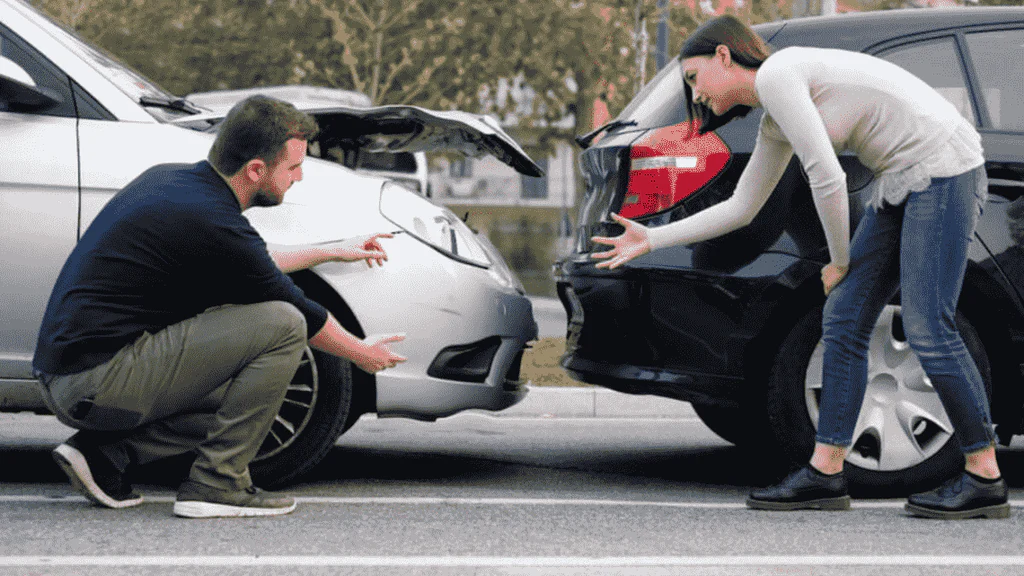
Introduction
Accidents can happen at any time and in various forms, often causing physical, emotional, and financial distress. Understanding the laws surrounding accidents is essential for individuals seeking justice and fair compensation in such unfortunate situations. Whether it’s a car accident, workplace incident, or slip and fall, being aware of the laws that apply can significantly impact the outcome of your case. In this blog, we will delve into the laws of accidents and provide you with a comprehensive guide to help you navigate through the complexities of personal injury cases.
Law of Accident: Terms to Know and Important Definitions
Definition of Law of Accident
The law of accident is a philosophical concept that states that accidents happen without any specific cause or reason. The idea behind this law is that some events occur randomly, and there may not be any logical explanation for why they happened. This concept suggests that sometimes things happen by chance, and there is no way to predict or prevent them.
Examples of Law of Accident in Real-Life Scenarios
There are many examples of the law of accident in real-life scenarios. For instance, a person may slip and fall on a wet floor even if the floor was marked with warning signs. In another example, an individual may get into a car accident even though they were driving carefully and following all traffic rules. These incidents illustrate how accidents can occur without any apparent reason.
Difference between Law of Accident and Law of Cause and Effect
The law of cause and effect states that every event has a cause and effect relationship. This means that every action has consequences, whether positive or negative. On the other hand, the law of accident suggests that some events occur randomly without any specific cause or reason.
Importance of Understanding Law of Accident in Decision-Making Processes
Understanding the law of accident is essential when making decisions because it helps individuals accept that some things are beyond their control. It also helps them realize that sometimes things happen despite their best efforts to prevent them from happening. By understanding this concept, individuals can make more informed decisions by taking into account the possibility of unexpected events occurring.
How to Mitigate the Effects of Law of Accident in Business and Personal Life
While it may not be possible to prevent accidents from happening entirely, there are ways to mitigate their effects on business and personal life. One way is to have contingency plans in place for unexpected events such as natural disasters or economic downturns. Another approach is to have insurance coverage for potential risks such as property damage or liability claims.
What is the law for an accident?
The law for accidents varies depending on the jurisdiction and the circumstances of the accident. In general, the law requires drivers to operate their vehicles in a safe and responsible manner at all times. This means following traffic laws, obeying speed limits, and paying attention to the road. If a driver breaches this duty of care and causes an accident, they may be held liable for any damages that result. Victims of accidents may be entitled to compensation for medical expenses, lost wages, property damage, and pain and suffering. To pursue a claim, victims must generally prove that the other driver was negligent or behaved recklessly in causing the accident. Additionally, there may be statutes of limitations that limit the amount of time that victims have to file a claim. Consulting with a car accident lawyer can help individuals understand the specific laws that apply to their case and navigate the legal process.
Understanding the Legal Process for Car Accident Cases

1. Filing a Lawsuit for Car Accident Cases in California
Car accidents can be traumatic, leading to physical and emotional injuries. In California, car accident cases are resolved through civil court proceedings. The legal process for car accident cases involves filing a complaint, serving the defendant, and conducting discovery.
2. Filing a Complaint
The first step in filing a lawsuit is to file a complaint with the court. The complaint must include information about the parties involved, the date of the accident, and details about how the accident occurred. It must also state what damages you are seeking from the defendant.
3. Serving the Defendant
After filing a complaint with the court, you must serve it on the defendant. This means that you must deliver a copy of your complaint to the defendant so that they have notice of your lawsuit. You can do this by mail or through personal service.
4. Conducting Discovery
Once both parties have filed their initial pleadings with the court, they will begin discovery. During discovery, both parties exchange information and evidence related to the case. This may include documents such as medical records or witness statements.
5. Trial Proceedings
If your case proceeds to trial, either a judge or jury will determine liability and damages. Liability refers to who is responsible for causing the accident while damages refer to financial compensation awarded for losses suffered due to an injury caused by someone else’s negligence.
6. Compensation for Damages
If you win your case at trial or reach a settlement agreement with the defendant outside of court, you may be entitled to compensation for damages resulting from your car accident. This may include medical expenses incurred as a result of injuries sustained in the accident as well as lost wages if you were unable to work due to those injuries.
When Do You Need A Lawyer?
While it is possible to represent yourself in a car accident case in California, it is highly recommended that you seek out an experienced attorney who specializes in personal injury law. An attorney can help you navigate the legal process, gather evidence to support your case, and negotiate with insurance companies on your behalf.
How Do Accident Lawyers Work?
Accident lawyers work on a contingency fee basis. This means that they only get paid if you win your case or reach a settlement agreement. Typically, they will take a percentage of the amount awarded to you as compensation for their services.
Why Choice of Law is Important in Car Accident Cases
Choice of Law in Car Accident Cases
Understanding the choice of law doctrine is crucial. This doctrine determines which state’s laws apply to a case, and can significantly impact the outcome. In this section, we will discuss why choice of law is important in car accident cases, what type of law applies to these cases, and how factors like location affect the choice of law.
Different Laws for Different States
One reason why choice of law is so important in car accident cases is because different states have different laws regarding liability, damages, and insurance requirements. For example, some states follow a “no-fault” system where each driver’s insurance covers their own injuries and damages regardless of who was at fault for the accident. Other states follow a “fault” system where the at-fault driver’s insurance covers damages and injuries for both parties.
Additionally, some states have caps on certain types of damages such as pain and suffering or punitive damages. The amount that can be recovered may also be impacted by comparative negligence laws which determine how much responsibility each party bears for the accident.
Factors Affecting Choice of Law
The choice of law depends on several factors including where the accident occurred, where the parties reside, and where the vehicles are registered. If two drivers from different states get into an accident in a third state with its own unique set of laws, determining which state’s laws apply can be complicated.
For example, if someone from New York gets into an accident while driving through Florida with their New York-registered vehicle but injures someone who lives in Georgia while driving their Georgia-registered vehicle – which state’s laws apply? An experienced car accident attorney would need to consider all relevant factors to determine which state’s laws would be most favorable for their client.
Consulting with an Attorney
Given how complex determining the choice of law can be in car accident cases, it is essential to consult with an experienced attorney. They can help you understand which state’s laws apply to your case, and how those laws may impact the damages you can recover.
For example, if someone from a no-fault state gets into an accident in a fault state, they may not be able to recover as much compensation for their injuries and damages as they would in their home state. An attorney can help navigate these complexities and ensure that you receive fair compensation for your losses.
Car Accident Statute of Limitations, Liability Laws, and Experienced Attorneys
Statutes of limitations are deadlines for filing a lawsuit. In California, car accident victims have two years from the date of the accident to file a lawsuit. After this time period has passed, they lose their right to sue. It is important to note that the statute of limitations varies by state.
Liability laws in California require drivers to carry minimum insurance coverage for bodily injury and property damage. However, if damages exceed policy limits, victims may still pursue legal action against the at-fault driver. This can be done by filing a claim with their own insurance company or by hiring an experienced attorney who can help them navigate the legal process.
Experienced attorneys can help car accident victims build a strong negligence claim by investigating the accident and gathering evidence such as police reports, witness statements, and medical records. Negligence claims may include factors such as speeding, distracted driving, drunk driving, or failure to follow traffic laws.
Victims may be eligible for more than just medical expenses and property damage. They may also be able to recover lost wages and other related costs such as pain and suffering.
It is important for all drivers to understand their financial responsibility in the event of a car accident. This includes carrying adequate insurance coverage to protect themselves and others on the road. Failure to do so can result in serious financial consequences if found liable for an accident.
Car Accident Law: Know Your Rights! Find the Right Lawyer for Your Case and Understand Your Rights

If you’ve been involved in a car accident, it’s important to know your rights and take the necessary steps to protect yourself. Car accident law can be complex, so finding the right lawyer is crucial. Here are some key points to keep in mind:
Finding a Lawyer Who Knows Car Accident Law
Car accident law varies by state, so it’s important to find a lawyer who has experience handling cases in your area. Look for someone who specializes in car accidents and has a proven track record of success. A good lawyer will help you navigate the legal process and ensure that you receive fair compensation for your injuries.
Navigating the Legal Process
Dealing with insurance companies can be stressful and time-consuming. A good car accident lawyer will handle all communication with insurance adjusters on your behalf, ensuring that you don’t say anything that could hurt your case. They’ll also help you gather evidence to support your claims, such as police reports, witness statements, and medical records.
Negotiating Settlements
Most car accident cases are settled out of court through negotiations between lawyers and insurance companies. A skilled negotiator can help you secure a fair settlement without having to go to trial. Your lawyer will work with you to determine how much compensation you’re entitled to based on factors such as medical bills, lost wages, pain and suffering, and property damage.
Understanding Your Rights as a Victim
As a victim of a car accident, it’s important to understand your rights under the law. You have the right to seek compensation for any damages or injuries caused by the other driver’s negligence or recklessness. This includes medical bills, lost wages, property damage, pain and suffering, and more.
In addition to seeking compensation from the other driver’s insurance company, you may also be able to file a lawsuit against them if their actions were particularly egregious or resulted in serious injury or death.
Remember: Protecting Yourself After an Accident is Key
If you’ve been involved in a car accident, it’s important to take steps to protect yourself and your legal rights. Seek medical attention right away, even if you don’t think you’re injured. Report the accident to your insurance company as soon as possible. And most importantly, contact an experienced car accident lawyer who can help guide you through the legal process and ensure that you receive fair compensation for your injuries and damages.
Conclusion
The Law of accident is a complex area of law that requires expert knowledge and experience. If you have been involved in a car accident, it is important to take immediate action and seek legal advice from an experienced personal injury lawyer. Understanding the laws of accidents is crucial for anyone who may find themselves in an unfortunate incident. This blog has provided a comprehensive guide, covering various aspects of accident laws to help individuals navigate through personal injury cases with confidence.
Frequently Linked Page
Car Accident Law – Car Accident Law: Understanding Your Rights and Responsibilities
FAQs
1. What is Car Accident Law?
Car accident law refers to the legal rules that determine who is responsible for the personal and property damage resulting from a traffic collision. This area of the law consists of the principles of negligence, as applied to this particular category of personal injury cases. Like other cases in which negligence law applies, car accident litigation is governed almost entirely by state law.
2. When should you seek legal help?
Whether you’ve sustained injuries or got your car damaged, you should always seek professional legal counsel right after an accident.
3. What to Do After a Car Accident?
Due to the high number of accidents, motor vehicle accidents compromise the most significant proportion of personal injury cases. Knowing what to do immediately after an accident can make a significant impact on a case and help individuals protect their legal rights. Use this car accident law handbook to understand your legal rights and strengthen your claim.
4. What are your rights?
One of the first car crash rights is the right to protect yourself from any at-fault claims. Even if you believe you were the cause of the collision, do not allow the other driver or the insurance company to force you into admitting guilt. Leave it up to the insurance companies or courts to determine fault.
5. Why Choice Of Law Is Important In Car Accident Cases?
Different states have different laws when it comes to personal injury cases such as car accident claims. For instance, Florida’s personal injury lawsuits follow pure comparative negligence law. This means that you are able to receive compensatory damages proportionate to your fault, regardless of the percentage of your fault. So if you were 99% responsible for an accident, you may still recover 1% compensation. In contrast, other states follow a pure contributory negligence law. Such states bar a person from recovering any damages if he or she shares any percentage of fault.

